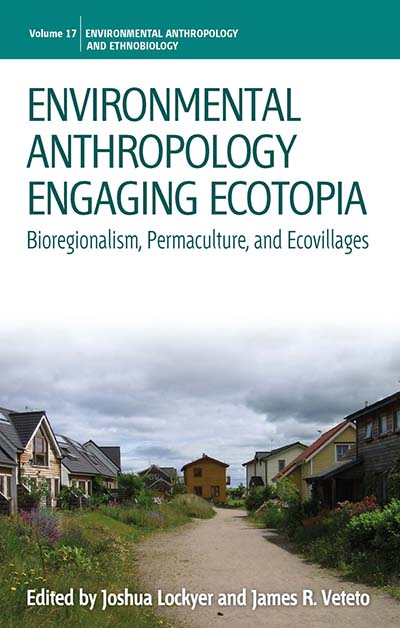A study in integrated
environmental and economic analysis -
This report, prepared within the broad framework of EEA work on
environmental accounts, presents and describes the tool of
environmentally extended input-output analysis and illustrates its
potential uses. The report aims to: present the tool of environmentally
extended input-output analysis of EE-IOT and assess its potential for
answering key SCP policy questions; make use of the tool and the latest
data available in Europe to identify the environmental 'hotspots' and
leverage points in European consumption and production; and identify
weaknesses and potential for improvement in the current application of
the tool.
We are no longer updating the Research Digest. All content remains.
The Permaculture Research Digest has summaries of newly published permaculture-related research. All items are
hyper-linked to the original publication.
The 'January 2013' archive contains 60 items published in 2012.
Items marked with a # have restricted public access, although abstracts are freely available.
Permaculture Research Digest
Tuesday, 21 May 2013
The precautionary principle and innovation (report)
The 2013 Late lessons
from early warnings report is the second of its type produced by the
European Environment Agency (EEA) in collaboration with a broad range of
external authors and peer reviewers. The case studies across both
volumes of Late lessons from early warnings cover a diverse range of
chemical and technological innovations, and highlight a number of
systemic problems. The 'Late Lessons Project' illustrates how damaging
and costly the misuse or neglect of the precautionary principle can be,
using case studies and a synthesis of the lessons to be learned and
applied to maximising innovations whilst minimising harms.
Current status of European waters (report)
This report is a
synthesis of the main messages from nine EEA reports dealing directly or
indirectly with water ecosystems or the pressures acting upon them. It
is the last in the series of reports published by the EEA in support of
water year 2012. It seeks to first provide an overview of the state of
Europe's waters and the pressures acting on those waters. It then looks
in greater detail at the economic and social factors driving these
pressures, and concludes with a summary of the societal and policy
challenges that must be met if water is to be managed sustainably.
Vulnerable water resources in Europe (report)
This EU report describes
how the natural cycle of water availability is continuously coming under
threat from a variety of different pressures like droughts and water
scarcity, pollution, and flood risks which all increase the
vulnerability of the freshwater ecosystems and societies. Land use,
water abstraction and climate change are human-induced changes that
alter the natural flow regimes that exist in water bodies.
Citizen science for biodiversity monitoring (on-line)
What will change energy consumption behaviour? (report)
Achieving energy efficiency through behaviour change: what does it take?
This EU report provides a review of available literature on measures targeting consumer behaviour in order to achieve energy savings. It focuses on: Energy efficiency measures and behaviour change; structural factors - such as the impact of liberalisation and the energy mix and energy tariff structures; the rebound effect.
Sentinel landscapes explained (on-line)
Monitoring change, creating outcomes: forests, trees and agroforestry in sentinel landscapes
A slide show presentation explaining the role of sentinel landscapes in monitoring change to forest environments across the globe. This website also contains a number of other interesting presentations about the work Biodiversiy International do to protect vulnerable habitats and promote agrobiodiversity and agroforestry.
Ecotopia: bio-regioanlism, permaculture and ecovillages (book)
ENVIRONMENTAL ANTHROPOLOGY ENGAGING ECOTOPIA: Bioregionalism, Permaculture, and Ecovillages
The authors argue for re-orienting environmental anthropology from a problem-oriented towards a solutions-focused endeavor. Using case studies from around the world, the contributors examine the interrelationships between three prominent environmental social movements: bioregionalism, a worldview and political ecology that grounds environmental action and experience; permaculture, a design science for putting the bioregional vision into action; and ecovillages, the ever-dynamic settings for creating sustainable local cultures.
Subscribe to:
Posts (Atom)

